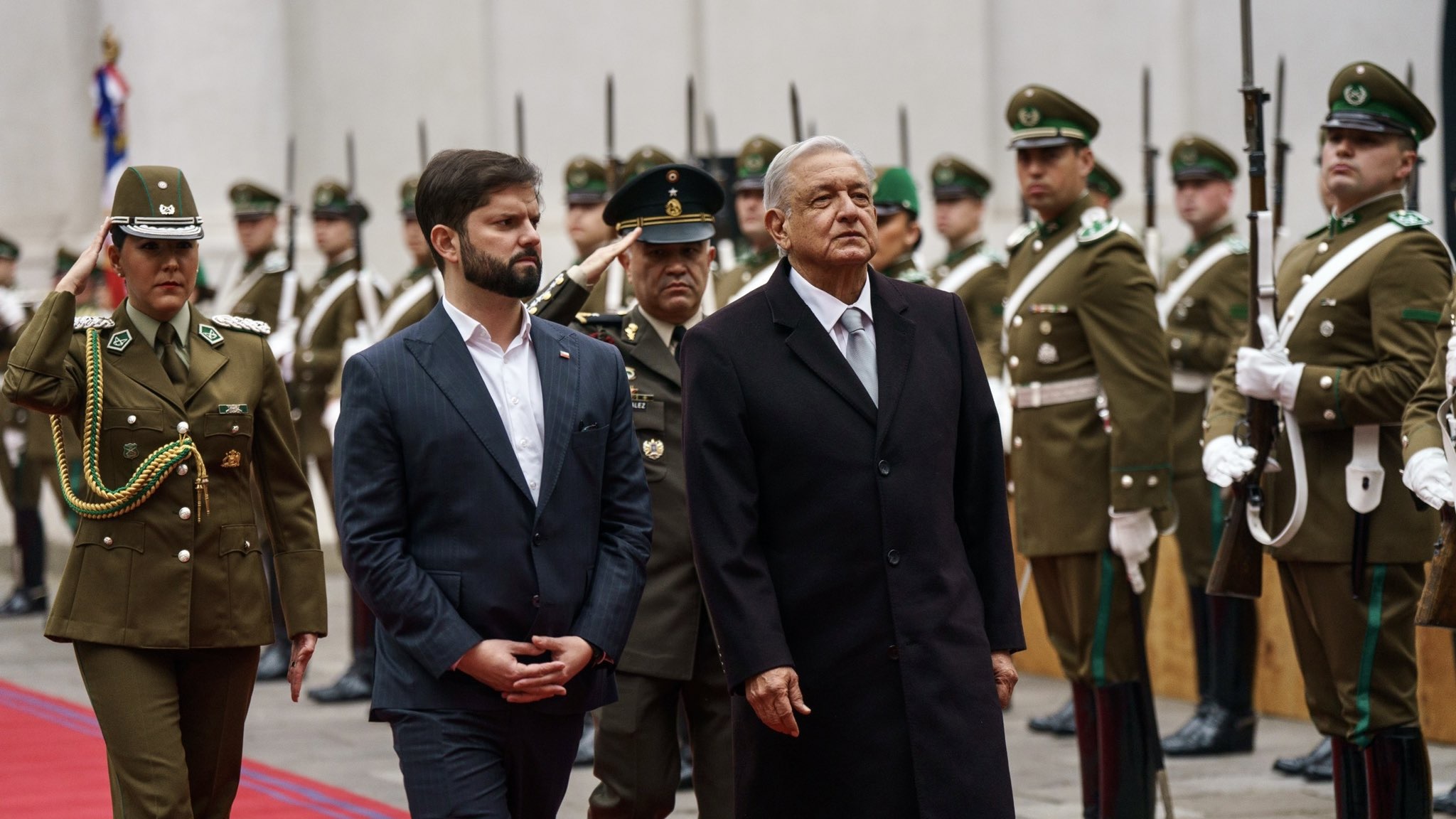Chile and Mexico have called upon the International Criminal Court (ICC) to investigate the crimes being committed amid Israel’s ongoing war on Gaza. In the past 105 days, Israel has killed over 24,600 Palestinians in Gaza, with more than 7,000 people missing and presumed dead under the rubble.
In a statement released on January 18, Mexico and Chile stated that their referral to the ICC was “due to growing concern about the latest escalation of violence, particularly against civilian targets, and the alleged continued commission of crimes under the jurisdiction of the Court, specifically since the attack on October 7, 2023, carried out by Hamas militants and the subsequent hostilities in Gaza.”
The ICC is based at The Hague alongside the International Court of Justice (ICJ), which is the chief judicial organ of the United Nations that adjudicates disputes between states. Meanwhile, the ICC is a separate legal entity that has been established under the Rome Statute, and is authorized to prosecute individuals. It has jurisdiction over crimes against humanity, war crimes, genocide, and crimes of aggression.
The referral filed on Thursday follows after Bolivia, South Africa, Djibouti, and the Comoros approached the court in November, calling on chief prosecutor Karim Khan to investigate the commission of war crimes, crimes against humanity, and genocide in Palestine.
While Israel is not a State Party to the Rome Statute and does not recognize the jurisdiction of the ICC, Palestine was accepted as a member state of the ICC in 2015. In February 2021, a pre-trial chamber of the court ruled that it had jurisdiction over the “territories occupied by Israel since 1967, namely Gaza and the West Bank, including East Jerusalem”.
The following month, the ICC, under former chief prosecutor Fatou Bensouda, opened an investigation into the “situation in Palestine” covering the period starting from June 13, 2014. This was after Bensouda concluded that there was a “reasonable basis to believe that war crimes “have been or are being committed” in the occupied Palestinian territories.
In November, Bensouda’s successor, Karim Khan had stated that the investigation would cover “the escalation of hostilities and violence” since October 7.
However, Palestinian human rights organizations and legal representatives of victims have denounced delays and double standards in the investigation under Khan. In early December, Khan visited Israel, however he did not go to the Gaza strip despite the fact that Israel had already killed over 15,000 people by that time.
Also read: Israel is clear on its genocidal aim, but will the ICC act?
Even prior to the ongoing attacks on Gaza which began on October 7, Palestinian human rights organizations had repeatedly called on Khan to issue preventive statements “to deter the commission of more crimes” by the Occupation. These calls, along with calls to expedite the investigation, were ignored.
These organizations have since urged the Court to issue arrest warrants for Israeli political, security and military officials “believed to be responsible for perpetrating, ordering, planning, and instigating international crimes, including genocide, committed over the past 100 days as well as since 13 June, 2014.”
In its statement on Thursday, the Mexican foreign ministry emphasized “the importance of guaranteeing the independence of the ICC prosecutor to investigate crimes committed in the context of the conflict in Gaza.”
The submission to the ICC was welcomed by the Palestinian foreign ministry, stating that the move “confirmed the urgent need for the Court to fulfill its mandate, to deter, investigate, and prosecute the most serious crimes of concern for the international community.”
“Israeli officials are not deterred as they continue their genocidal war.”
Mexico’s statement also cited UN reports on “numerous incidents that may constitute crimes within the jurisdiction of the ICC”. Just in the past few days, UN experts have accused the Israeli occupation of using food as a “weapon” against the Palestinian people, noting that “every single person in Gaza is hungry”.
Speaking to the BBC following a visit to Gaza on Friday, Phillippe Lazzarini, the head of the UN Relief Works Agency stated, “we’re running the risk here of losing a generation of children.”
Meanwhile, Mexico has also stated that it is “promptly following up on the case presented by South Africa before the ICJ and on the request for provisional measures”. Pretoria has accused Israel of violating its obligations to prevent and punish genocide under the 1948 Genocide Convention. It has called on the ICJ to issue urgent measures, including ordering Israel to immediately cease its military operations in Gaza.
The Court is currently deliberating the case following hearings held on January 11 and 12.
While Israel’s allies, including the US have predictably dismissed South Africa’s case— with Germany going as far as to formally intervene in the proceedings on Israel’s behalf— the historic case has garnered growing support among the countries of the Global South. The court’s ruling in this matter will be legally binding.
In televised remarks delivered on Israel’s 100th day of bombing Gaza, Prime Minister Benjamin Netanyahu declared “Nobody will stop us – not The Hague, not the axis of evil [a phrase coined by ex-US president George Bush and used by Netanyahu to refer to Iran, Hezbollah in Lebanon and Hamas] and not anybody else.”





